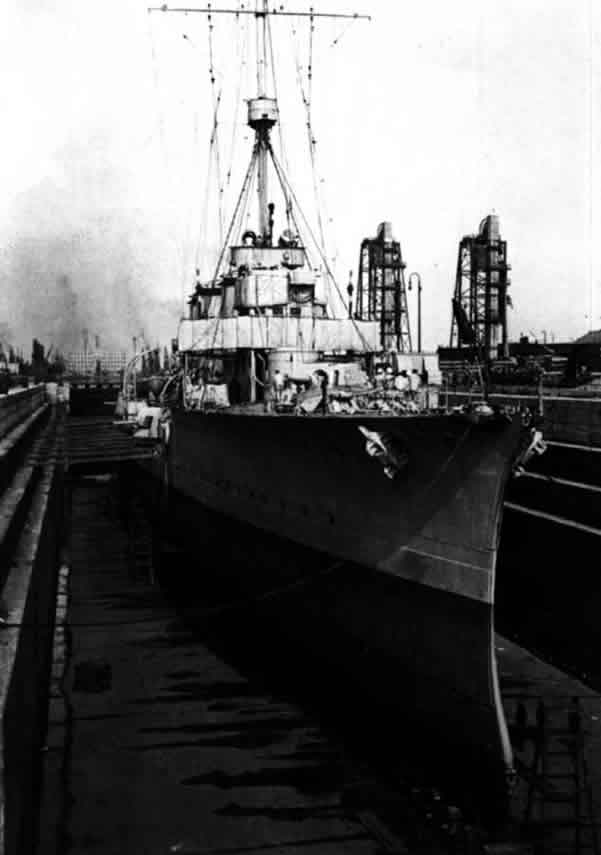1920s: A Fledgling Navy Struggles to Survive
HMCS AURORA
The 1920s
Table of Contents
On the 1st of November 1920, HMCS AURORA was commissioned into the RCN.
A 'light' cruiser, she was one of the eight ship ARETHUSA Class of the RN. Built at HM Dockyard in Devonport, she had been launched on Sept 30th, 1913.
Weighing in at a mere 3512 tons, she was 436' long, had a beam of 39' and a draught of 13.5 feet. She was fitted with the new steam turbines, and with PATRIOT and PATRICIAN, used oil instead of coal. Her engines developed 40,000 hp and her design speed was 29 knots. She mounted 2-6" guns, 6-4" guns, 11 smaller caliber weapons and 8-21" torpedo tubes. Her crew complement was 370 all ranks.
AURORA had served with the Royal Navy "Grand Fleet" from 1914 to 1916. As a result of German attacks on the British coastal towns of Gorleston and Scarborough in 1914, she was part of the battle-cruiser force which was detached from Scapa Flow into southern England, and which was ready to swing out behind an attacking German force and cut them off from retreat to Germany if they attacked English coastal towns again. She was the first ship into action into the largest of the sorties made against German coastal raids, the Battle of Dogger Bank on Jan 24th, 1915.
She had also pioneered in trials for launching scout aircraft from cruisers, as an addition to their reconnaissance capability.
She was paid off to disposal in 1922, but suffered a lingering death in Halifax for the next 5 years, as she gradually deteriorated. She was sold for breaking up in 1927 and was taken to Sorel to the yards of AA Lasseque.

HMCS Aurora in Drycock
